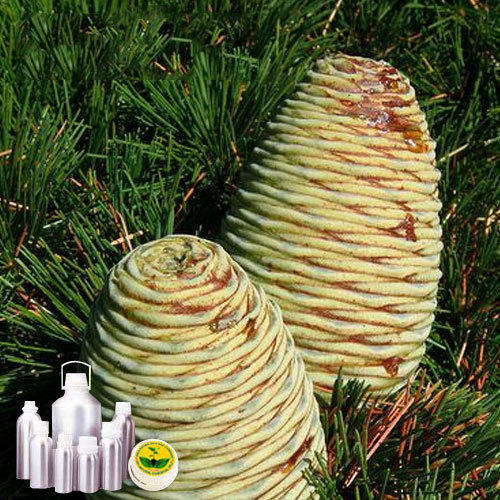Botonical Name | : | Cedrus atlantica | |
CAS # | : | 8023-85-6 | |
Country of Origin | : | Morocco | |
Color & Odor | : | Golden yellow to orange-brown liquid with Characteristic balsamic odor | |
Solubility | : | Soluble in alcohol and oils. Insoluble in water. | |
Specific Gravity | : | 0.92500 - 0.94000 @ 25 °C | |
Optical Rotation | : | +34 – +54 @ 20°C | |
Refractive Index | : | 1.50600 - 1.51600 @ 20 °C | |
Flash Point | : | >100° C | |
Major Constituents | : | b-Himalachene | |
Plant Part Used | : | Wood | |
Extraction Method | : | Steam Distillation |
DESCRIPTION:
Atlas Cedar is a distinctive evergreen plant with silvery blue to bluish-green needles. Weeping blue atlas cedar, it can be used with Rose, frankincense, neroli, cedarwood, ylang ylang, orange and finds application in treating varied problems related to Bronchitis, Cellulite Reduction and others. It is also used as a constituent in the making of Insect Repellents. CONSTITUENTS:
a-himachalene , ß-himachalene , himachalene (E)-a-atlantone, terpenic hydrocabons, cedrol sequiterpenes. AROMATIC SUMMARY / NOTE / STRENGTH OF AROMA:
A middle note of strong aroma, Atlas Cedar Oil has a woody, sweet, scent that is sharper than Virginian Cedarwood, and slightly reminiscent of mothballs. BLENDS WITH:
Rose, frankincense, neroli, cedarwood, ylang ylang, orange, bergamot clove, lavender, rosewood, rosemary, juniper berry, clary sage, herb and floral scents, bergamot, citrus oils especially grapefruit. COMMON NAMES:
Cedar, Weeping blue atlas cedar, Atlas cedarwood. USES:
Atlas Cedar Oil finds application in treating ailments like Acne, Bronchitis and Cellulite Reduction. Further, it is also used as a Insect Repellent. 


































